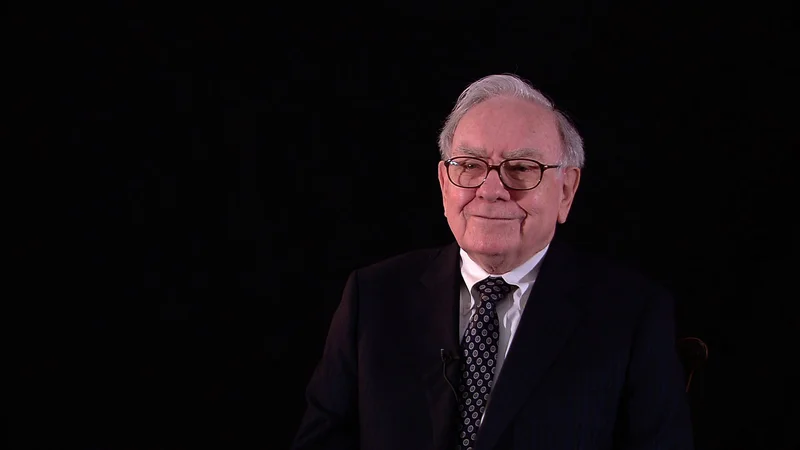The Oracle's Warning, The Founder's Bet: Why We're All Missing the Point on CEO Pay
When the Oracle of Omaha speaks, we all tend to listen. And this week, in his final letter as CEO of Berkshire Hathaway, Warren Buffett gave us a sermon on the runaway train of executive compensation. He pointed to the "envy and greed" driving CEOs to demand ever-larger paychecks, a game of one-upmanship where the score is kept in billions. He’s not wrong. On the surface, the numbers are staggering, almost offensive. But when I read his words, I felt a strange disconnect. It was like listening to a master sailor expertly describe the currents while completely missing the tsunami forming on the horizon.
Buffett is looking at the world through a paradigm of value, of steady growth, of a system we all understand. And through that lens, Elon Musk’s potential $1 trillion pay package, followed by RJ Scaringe’s $4.6 billion deal at Rivian, looks like the apex of corporate avarice. The CEO-to-worker pay ratio has exploded to 632:1, and it’s easy to see this as a moral failure.
But what if it’s not? What if this isn't just a bigger slice of the same old pie? I believe we’re witnessing the clumsy, chaotic birth of an entirely new economic model—one designed not for managing companies, but for catalyzing revolutions.
From Salary to Bounty
Let’s be clear: these aren't salaries. A salary is what you get for showing up and doing a job. What Musk and Scaringe have are not jobs in the traditional sense; they are quests. And these compensation packages are not paychecks; they are bounties.
Think of it like this: in the old fables, the king didn't offer a knight a competitive annual salary with benefits to go fight the dragon. He offered a singular, life-altering prize for success: half the kingdom. It was an all-or-nothing contract for achieving the impossible. That’s what we’re seeing here. Musk’s payout is entirely contingent on Tesla reaching an $8.5 trillion market capitalization—a figure so astronomical it implies a fundamental rewiring of our energy and transportation infrastructure—it's about creating a future of sustainable energy and making humanity a multi-planetary species and you just don't get there with quarterly earnings calls and modest stock options.

When I first read Buffett's letter, I honestly just nodded along, thinking about the wisdom of his long-term perspective. But then I looked again at the structure of these deals. They aren't rewarding tenure; they are rewarding transformation. They are a bet, placed by shareholders, that one person’s vision can generate a thousand-fold return for everyone. Is it a dangerous bet? Absolutely. But is it the same old story of executive greed? I don't think so.
A New Operating System for Ambition
What we're seeing is a fundamental clash of operating systems. Buffett represents the gold standard of the 20th-century model: build a durable, profitable enterprise through discipline and compounding value. It’s an incredible system that built the modern world. But it’s not designed to get us to Mars. It’s not designed to pivot the entire global auto industry to electric in a single decade. For that, you need a different kind of incentive.
This reminds me of the Longitude Prize of the 18th century. For decades, sailors were getting lost at sea because they couldn't determine their longitude. The British government, representing the old guard, couldn't solve it. So what did they do? They offered a massive prize—a fortune equivalent to millions today—to anyone who could crack the code. It wasn't a government contract; it was a bounty on a breakthrough. And it worked.
Critics, like Norway’s massive sovereign wealth fund, raise valid concerns about the "total size of the award" and "key person risk." Key person risk—in simpler terms, the danger of building a company that can’t survive without its visionary founder—is a real issue for investors. But from a human progress perspective, it’s a feature, not a bug. These missions require a singular, obsessive vision. You don't get a paradigm shift by committee.
Of course, this creates a new class of techno-kings, and we have to ask ourselves if we're comfortable with that level of wealth and power concentrated in a few hands. What does a trillionaire truly owe society? That’s the profound ethical question of our time, and we don’t have an answer yet. But blocking the incentive structure that might just solve climate change or make us an interplanetary species feels like a failure of imagination.
Betting on the Impossible
So, is Warren Buffett right to warn us about envy and greed? Yes, on a human level, he is. But he’s diagnosing the symptom, not the system. These gigantic, performance-based bounties aren't a flaw in the old system; they are the source code for a new one. It's a system that says we will offer an almost obscene reward for solving an almost impossible problem. It's messy, it's uncomfortable, and it feels profoundly unfair. But it might just be the only tool we have to incentivize the kind of radical, world-breaking progress we so desperately need. We’re not just paying for a CEO; we’re funding a moonshot. And in the 21st century, that might be the best investment we can make.
